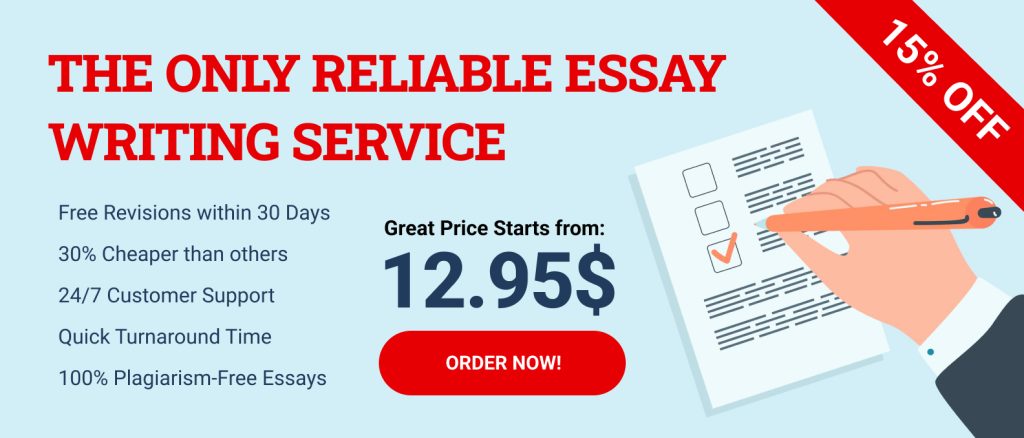When faced with a writing prompt, writers often grapple with the daunting task of analyzing the prompt and formulating a strong claim for their argumentative essay. In such moments, it is crucial to find a guiding question that can unravel the complexities of the prompt and pave the way toward developing a compelling argument.
But which question holds this power? Which inquiry can lead writers on a path of critical analysis, enabling them to unearth hidden nuances and craft an assertive thesis statement? Unlocking this key question is akin to finding the gateway to unlocking the potential within any writing assignment – it opens up avenues for exploration, challenges assumptions, and ultimately lays the foundation for a well-crafted argumentative essay.
Understanding the Prompt
When it comes to the art of crafting an exceptional essay, the initial step often sets the tone for the entire creative process. In the context of essay writing, this step revolves around understanding the prompt. This seemingly straightforward task is a multi-layered endeavor that demands precision and attention to detail.
Read the Prompt Carefully
Naturally, the first inclination might be to rush through the prompt, eager to dive into the writing itself. However, this haste can prove to be counterproductive. Taking the time to read the prompt meticulously is an investment that pays dividends in the long run. By absorbing the nuances and subtleties embedded within the prompt’s language, a writer gains insights that can guide the trajectory of the essay.
Identify the Main Topic or Issue Being Discussed
The main topic or issue is the lodestar that directs the writer’s efforts. Pinpointing this core subject matter is akin to defining the boundaries of a canvas before a masterpiece is painted. A clear understanding of the main topic empowers the writer to align their argument with the overarching theme, resulting in a coherent and impactful essay.
Note Any Specific Instructions or Requirements in the Prompt
The devil is often in the details, which also holds true for essay prompts. Certain prompts come adorned with specific instructions or requirements, akin to signposts that guide the writer’s journey. These directives might outline the expected format, stipulate the use of certain sources, or establish the essay’s tone. Ignoring these details can create a mismatch between the writer’s intent and the reader’s expectations.
Analyzing the Prompt
Writing services become a purposeful endeavor when the art of prompt analysis comes into play. This phase involves unraveling the intricacies woven into the prompt, deciphering its underlying messages, and laying the foundation for a persuasive argument.
What is the Central Question or Issue Presented in the Prompt?
Naturally, at the heart of every prompt lies a central question or issue waiting to be explored. This question serves as a guidepost, directing the writer’s focus and dictating the contours of their argument. Unearthing this central query is akin to uncovering the map key that leads to a treasure trove of ideas.
Who is the Intended Audience for the Essay?
Write my essay services takes on different meanings when considering the intended audience. Is the essay aimed at experts seeking in-depth analysis, or is it tailored for a general readership? Understanding the target audience allows writers to calibrate their tone, language, and choice of examples to strike a chord with the readers who matter most.
What are the Key Terms or Phrases That Need Clarification or Definition?
Naturally, the terrain of academic writing often comes adorned with specialized terminology. These words act as signposts, guiding the reader through the writer’s argument. Yet, assumptions about the reader’s familiarity with these terms can lead to misinterpretation. Thus, dissecting and defining these key terms ensure that the essay’s narrative remains lucid and the argument remains accessible.
Are There Any Implicit Assumptions or Biases in the Prompt?
Writing service thrives on a foundation of objectivity and fairness. Yet, prompts might harbor implicit assumptions or biases that can sway the writer’s direction unconsciously. Recognizing these hidden undercurrents enables the writer to approach their argument with a heightened awareness, ensuring that their perspective remains balanced and well-supported.
Developing a Claim
The process of claim development emerges as the fulcrum upon which the entire argument pivots. This stage requires not only clarity of thought but also a finesse in articulating a stance that will guide the essay’s trajectory.
Identify Your Stance on the Issue
Naturally, the foundation of your claim rests upon your stance towards the issue at hand. Will you align yourself with the prompt’s assertion, oppose it vehemently, or opt for a nuanced position that lies in the middle ground? Clarifying your stance sets the stage for constructing a claim that mirrors your convictions.
Craft a Clear and Concise Claim Statement That Responds to the Prompt
In the clarity is the compass that guides the reader through the argument’s labyrinthine paths. Your claim statement should respond directly to the prompt, leaving no room for ambiguity. This succinct declaration illuminates your standpoint and sets the narrative trajectory for the essay.
Ensure the Claim is Specific, Debatable, and Focused
A formidable claim isn’t a mere statement of fact; it’s a catalyst for discourse. For writing to resonate, the claim should be specific enough to provide a clear direction, debatable enough to spark intellectual engagement, and focused enough to prevent your argument from wandering into the abyss of tangents.
Consider the Scope of Your Claim (Broad or Narrow)
As you navigate the landscape of your claim, consider the scope you wish to encompass. Do you seek to examine the issue at a macroscopic level, touching on overarching themes? Or does a microscopic approach, zooming in on specific facets, better serve your purpose? Tailoring the scope enhances the claim’s coherence and the essay’s effectiveness.
Reflect on Potential Counterarguments to Your Claim
In the tapestry of acknowledging counterarguments is a testament to intellectual honesty. Anticipating the opposing perspectives that might arise allows you to fortify your claim, address potential weaknesses, and present a more formidable argument that resonates even in the face of critique.
With your claim forged through careful consideration, we embark on the journey of building an argumentative essay that not only captivates but also persuades, leaving readers enriched by the experience.
Questions to Develop and Refine the Claim
In the world of refining and honing the claim is a pivotal act that transforms a simple statement into a compelling argument. This stage demands a critical examination, a willingness to adapt, and a commitment to constructing an assertion that withstands discourse scrutiny.
Does Your Claim Directly Address the Central Question or Issue?
At the core of lies the essence of the central question or issue. Thus, the claim is the vessel through which the writer engages with this nucleus of thought. The litmus test for the claim’s potency is its direct alignment with this core, ensuring that it doesn’t stray into tangential territories.
Is Your Claim Sufficiently Arguable, or Is It Too Obvious?
The terrain of argumentation thrives on contention, not on banalities. Flourishes when the claim invites debate rather than nods of agreement. An overly obvious claim might not provide the necessary friction to spark discussion. Striking the balance between a substantial yet contestable claim is the hallmark of a shrewd writer.
Have You Taken Into Account Any Nuances or Complexities of the Topic?
Much like individuals, topics possess layers of intricacies waiting to be uncovered. The ascends to new heights when the claim reflects an understanding of these subtleties. Delving into nuances not only showcases the writer’s grasp of the subject but also presents a richer, more nuanced perspective to the audience.
Does Your Claim Align With Your Personal Beliefs and Values?
Writing is not merely a mechanical exercise—it’s an expression of thought infused with the writer’s identity. While objectivity is paramount, alignment with personal beliefs can lend a sense of authenticity and passion to the argument. Striking a balance between objective analysis and personal resonance is the hallmark of persuasive writing.
Can You Support Your Claim With Credible Evidence and Logical Reasoning?
A claim unadorned with evidence is akin to a ship without a sail—directionless and adrift. Achieves its zenith when a robust framework of credible evidence and logical reasoning fortifies the claim. This support bolsters the claim’s credibility and transforms it from a mere assertion to a forceful persuasion.
As the crucible of claim development reaches its culmination, the probing questions unearth a claim that’s polished, potent, and primed for the journey ahead within writing.

Optional: Tips for Effective Argumentation
The effective argumentation isn’t a mere accessory—it’s the engine that propels your claim towards the shores of conviction. Crafting an argument that resonates requires finesse, meticulous research, and an awareness of the nuances that elevate your essay from mundane to memorable.
Offer Additional Tips for Building a Persuasive Argument Around the Claim
- Structure Matters: Much like a well-constructed building, your essay needs a strong foundation. Organize your arguments logically, presenting them in a sequence that flows naturally, guiding your readers through a coherent narrative.
- Appeal to Emotions and Logic: Persuasion dances between the realms of reason and emotion. Balancing both aspects adds depth to your argument. Use compelling statistics, anecdotes, and emotional appeals to create a comprehensive impact.
- Vary Your Evidence: Flourishes when your evidence isn’t limited to a single source or type. Incorporate a mix of scholarly articles, case studies, expert opinions, and real-world examples to provide a well-rounded perspective.
- Use Clear and Convincing Language: Clarity is your ally in argumentation. Avoid jargon and convoluted sentences. Choose words that resonate with your readers and convey your message directly.
Highlight the Significance of Research, Evidence, and Counterarguments
- Dive Deep into Research: Your claim becomes an intellectual fortress when constructed atop a foundation of thorough research. Explore reputable sources, delve into academic databases, and scrutinize relevant literature to bolster your argument.
- Embrace Credible Evidence: Stands tall when supported by evidence that’s not just abundant, but reliable. Cite sources with credibility and authority, enhancing the weight of your assertions.
- Acknowledge Counterarguments: A robust argument doesn’t shy away from opposition; it embraces it. Address counterarguments with fairness and depth. This not only shows your grasp of the topic but also builds trust with your readers.
- Weave a Web of Logic: The thread of logic weaves your argument together. Each point should naturally flow from the previous, leading your readers on a journey of understanding that culminates in your claim.
- Synthesize and Summarize: As your argument unfolds within periodically synthesize your key points and provide succinct summaries. This ensures that your readers are on the same page and reinforces the central message.
Incorporating these tips into your argumentative essay elevates your claim and enriches your engagement with your readers. Ultimately, the art of persuasive writing rests on your ability to entwine intellect, emotion, and reason into a tapestry of words that captivates and convinces.
Wrapping up
Asking the right question can make all the difference in analyzing a prompt and developing a claim for an argumentative essay. By considering the purpose of the prompt, identifying key terms and concepts, and thinking critically about the issue at hand, writers can gain a deeper understanding of what is being asked of them. Ultimately, this process will help writers craft a strong claim and ensure that their argument is well-supported and persuasive.
So next time you are faced with an argumentative essay prompt, remember to take the time to ask yourself the important question: What claim can I make that will effectively address this prompt? Doing so will set you up for success in your writing endeavors.
For expert essay writing services, contact Edu Jungles. We have a team of professionals waiting for you.

